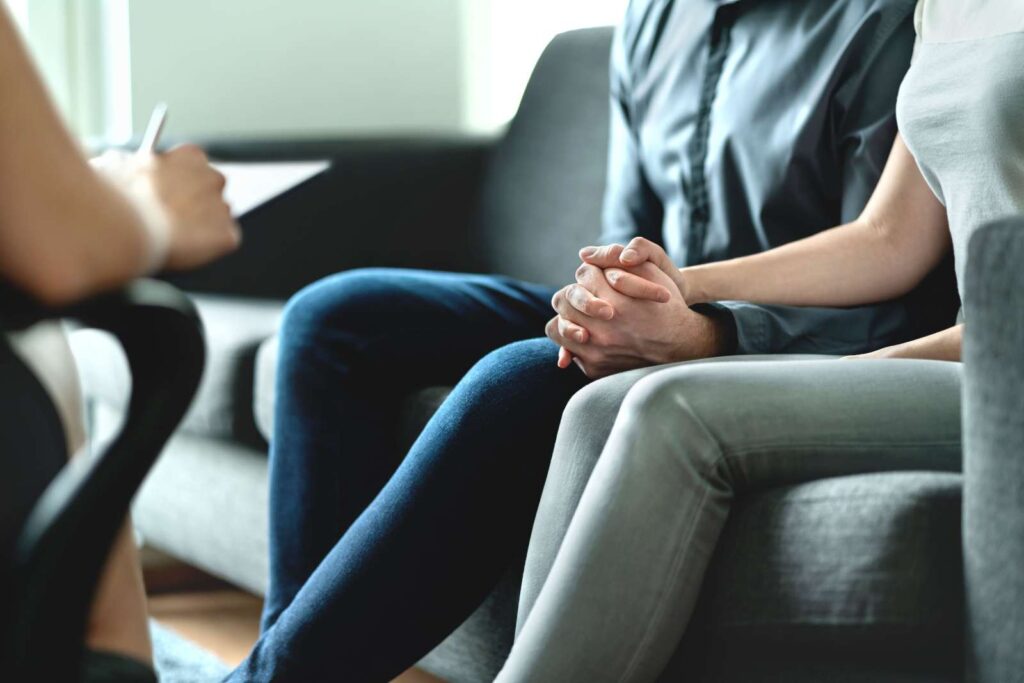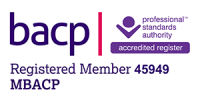For a lot of people, starting couples counselling brings much anxiety

I’m often struck by the anxiety that I see on the faces of clients when they come to their first couples therapy appointment. They are invariably wondering what’s going to happen.
Will they have to reveal things they don’t want to say in front of their partner? Will their partner say things they don’t want to hear? Will I judge them for how they are in their relationship? Will I push them to stay together when they want to separate, or to separate when they want to stay together?
With all these fears, it’s not surprising that many couples put off therapy until they reach crisis point. I advocate coming before the relationship reaches a crisis. It’s easier to resolve issues without the threat of separation hanging over the couple or the therapy. I hope that by explaining a little about what happens in couples counselling in this post, I can alleviate some of the fears and help couples come to therapy sooner.
Relationship therapy with your partner isn’t always easy but it may not be as frightening as some might think
Firstly, the therapist’s role is not to judge either partner in the relationship, nor to tell them what to do. The role of the therapist is to help the couple have the conversations they need to have to work out how they want to go forward. I can’t think of a couple I’ve worked with where the core of the work hasn’t been improving communication. As Helen Rattner, who sees individuals and couples at our Brighton practice, points out, “Although we are pack animals, we find the rules of engagement with our fellow human beings a tricky affair. We often dance around each other rather than dance together.” And there are many ways in which we can help you to dance together.
It’s unrealistic to expect two people to live alongside each other without friction. We all do things that irritate, hurt or infuriate our partners. I’m talking about big things and little things here, from infidelity, sexual problems and abusive behaviour to not taking the bins out or leaving the lid off the toothpaste. In couples therapy, we unpick why those things impact us as they do, how to communicate that clearly and what changes can be made going forward.

Tom Leonard specialises in couples work. He finds that when couples come with what they see as irreconcilable differences or unchangeable patterns of behaviour, counselling often helps them to understand those things in new ways and make shifts that didn’t previously seem possible. An important part of that process is recognising that both partners are responsible for the relationship and for their part in the problematic dynamics.
Therapy creates a space where both partners are treated equally, where both voices are heard and the therapist is an impartial third party. Many couples remark on how valuable that space is: 50 minutes a week to focus on their relationship away from the stresses of work, family and home.
This space provides the opportunity to improve many areas of the relationship: restoring intimacy, building trust, overcoming past infidelities, reducing aggression, resolving financial problems, sharing domestic responsibilities fairly, parenting effectively together, adjusting to retirement, managing relationships with wider family – the list goes on.
The therapist helps the couple to discuss issues such as these and to agree their way forward. In doing so, the couple learns to negotiate difficulties effectively themselves. Our aim isn’t to eliminate disagreements, but to equip the couple with the ability to work through them.
Ultimately, some couples will decide they want to separate – and it is always their decision. Couples therapy provides support through that process. Indeed, couples sometimes come to us having already made that decision and wanting our help to reduce the fallout, particularly if they have children. Delia Schumacher, a psychodynamically-trained couples therapist, stresses the importance for the couple of mourning the relationship and reflecting on what the ending means for them. It’s so easy for separation to degenerate into a blame game at a time when both partners are already hurting. Keeping communication open and compassionate with the help of couples therapy is invaluable.
Whatever stage a couple is at, there is no shame in coming to couples therapy. Keeping the love and communication going through all that life throws at us is a real challenge, and one that most of us are never taught how to handle. We’re here to help.
Kate Crawford is Head of Therapy Services at One Therapy London.
Share this post with someone you know.

